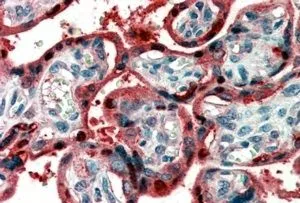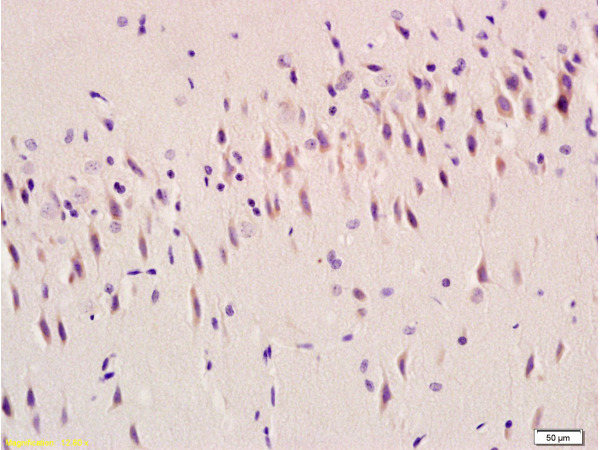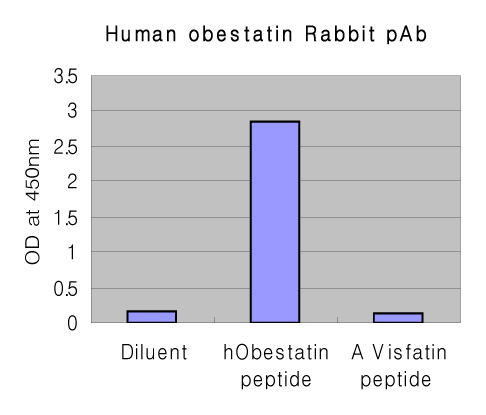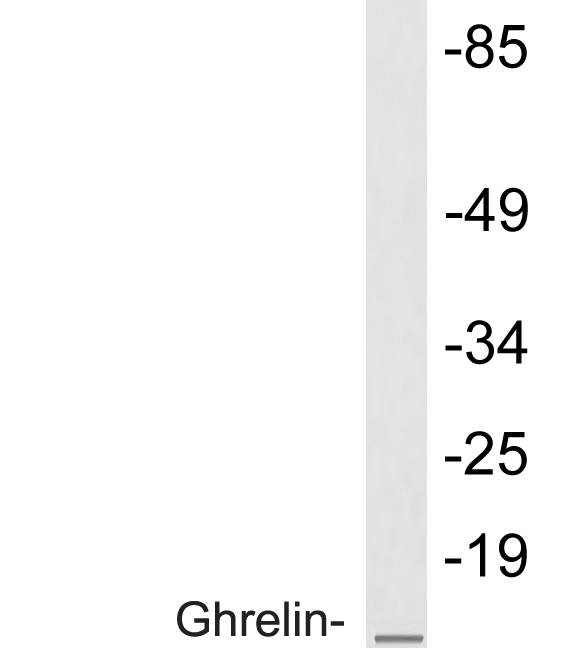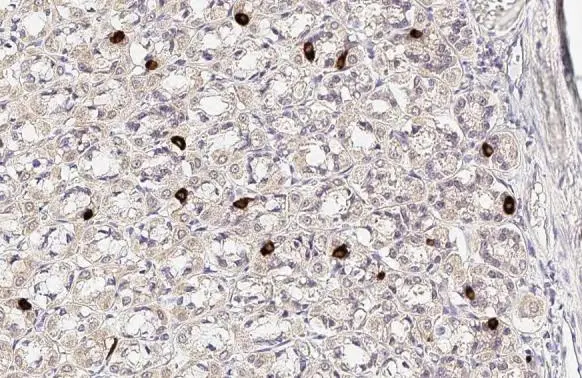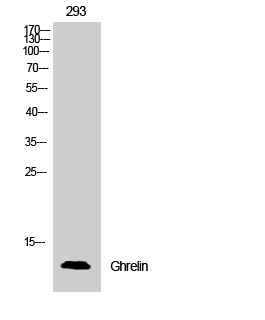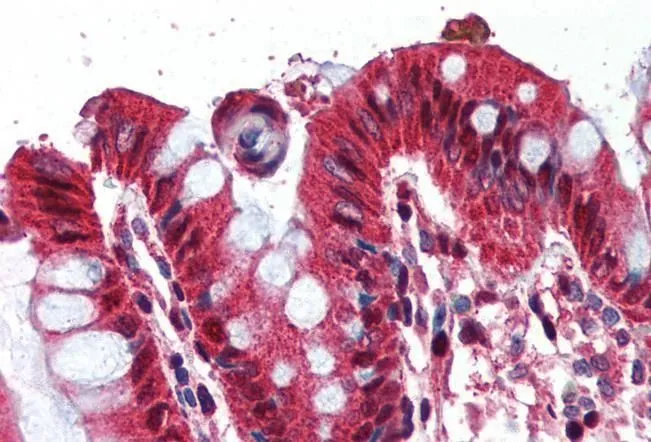
IHC-P analysis of human colon using GTX89489 Ghrelin preproprotein antibody, C-term. Antigen retrieval : citrate buffer pH 6 Dilution : 2μg/ml
Ghrelin preproprotein antibody, C-term
GTX89489
ApplicationsImmunoFluorescence, ImmunoCytoChemistry, ImmunoHistoChemistry, ImmunoHistoChemistry Paraffin
Product group Antibodies
ReactivityHuman, Rat
TargetGHRL
Overview
- SupplierGeneTex
- Product NameGhrelin preproprotein antibody, C-term
- Delivery Days Customer9
- Application Supplier NoteIHC-P: 2microg/ml. *Optimal dilutions/concentrations should be determined by the researcher.Not tested in other applications.
- ApplicationsImmunoFluorescence, ImmunoCytoChemistry, ImmunoHistoChemistry, ImmunoHistoChemistry Paraffin
- CertificationResearch Use Only
- ClonalityPolyclonal
- Concentration0.50 mg/ml
- ConjugateUnconjugated
- Gene ID51738
- Target nameGHRL
- Target descriptionghrelin and obestatin prepropeptide
- Target synonymsMTLRP, appetite-regulating hormone, In2c-preproghrelin, ghrelin, growth hormone secretagogue receptor ligand, ghrelin/obestatin preprohormone, ghrelin/obestatin prepropeptide, growth hormone-releasing peptide, motilin-related peptide, prepro-appetite regulatory hormone, preproghrelin
- HostGoat
- IsotypeIgG
- Protein IDQ9UBU3
- Protein NameAppetite-regulating hormone
- Scientific DescriptionThis gene encodes the ghrelin-obestatin preproprotein that is cleaved to yield two peptides, ghrelin and obestatin. Ghrelin is a powerful appetite stimulant and plays an important role in energy homeostasis. Its secretion is initiated when the stomach is empty, whereupon it binds to the growth hormone secretagogue receptor in the hypothalamus which results in the secretion of growth hormone (somatotropin). Ghrelin is thought to regulate multiple activities, including hunger, reward perception via the mesolimbic pathway, gastric acid secretion, gastrointestinal motility, and pancreatic glucose-stimulated insulin secretion. It was initially proposed that obestatin plays an opposing role to ghrelin by promoting satiety and thus decreasing food intake, but this action is still debated. Recent reports suggest multiple metabolic roles for obestatin, including regulating adipocyte function and glucose metabolism. Alternative splicing results in multiple transcript variants. In addition, antisense transcripts for this gene have been identified and may potentially regulate ghrelin-obestatin preproprotein expression. [provided by RefSeq, Nov 2014]
- ReactivityHuman, Rat
- Storage Instruction-20°C or -80°C,2°C to 8°C
- UNSPSC12352203

